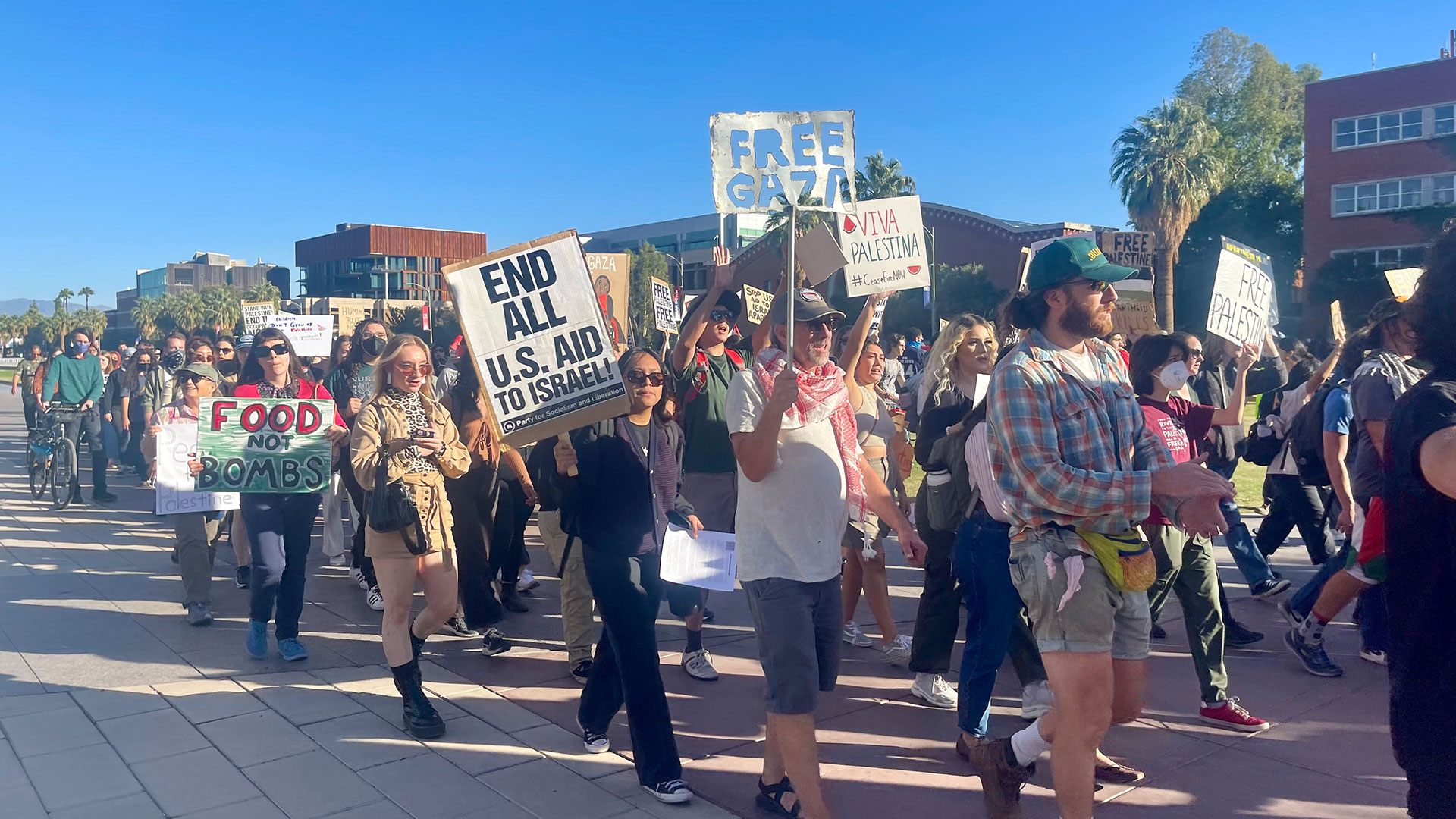 Palestinian supporters march on the University of Arizona campus on Thursday, Nov. 9, 2023, in Tucson, Ariz.
Palestinian supporters march on the University of Arizona campus on Thursday, Nov. 9, 2023, in Tucson, Ariz.
Last week, the Tucson City Council informed a room full of activists on both sides of the Israel-Hamas conflict that they wanted to see more unity here at home before they considered any symbolic resolution about the war.
But an incident this week is showing that achieving that unity is a tall order.
On Monday, a small group of protesters with the Arizona Palestine Solidarity Alliance gathered outside Representative Juan Ciscomani’s office. The Congressman returned from Israel just last week.
After a few hours, a counter protestor supporting Israel confronted them. Social media video shows the visibly angry man yelling, grabbing their cardboard signs and ripping them in half.
“I’m standing up for my people, you’re standing up for nobody,” he says in the video. “You all just hate Jews, you want Jewish blood.”
David Feagin was there as part of the Alliance, and said he felt worried.
“My immediate thought was just like, I need to make sure that this doesn't get violent,” he said.
At the same time, the Anti Defamation League reported this week that anti-semitic incidents increased by over 200 percent in Arizona last year, most of them happening after October 7th.
The League also reported that many incidents of antisemitism happened at protests surrounding the Israel-Hamas war.
Now past the six month mark of the war, city council memb ers have been increasingly encouraged by both groups to take a side. But at their April 9th meeting, they were not ready to do that.
“This is not the place for this to be resolved. The communities of interest need to work together,” said Vice Mayor Kevin Dahl.
Apart from Councilmember Lane Santa Cruz, who put the ceasefire resolution on the agenda, the council was unwilling to take a side, for fears of alienating the other.
“What I am concerned about, is the lack of a unified voice in this from the community,” said Councilwoman Nikki Lee.
With local leadership at a standstill, Feagin said anger remains the biggest barrier to achieving that unity.
“When there's an approach of immediate anger, and your immediate reaction is violence, there's no unity possible,” he said.
However, at that same protest, Feagin saw evidence that these discussions aren’t impossible.
“At least two separate people, we were able to talk to and show them why we were there, and able to end civilly, shake hands and say, you know, it’s all respect. I think it's important to point that out, that unity is possible among people who are willing to talk,” he said.
At the April 9th council meeting, Mayor Regina Romero said she planned to write to President Biden and federal leadership about Tucson’s strong feelings about the war. For now, discussions within the community, although painful, will have to continue.

By submitting your comments, you hereby give AZPM the right to post your comments and potentially use them in any other form of media operated by this institution.